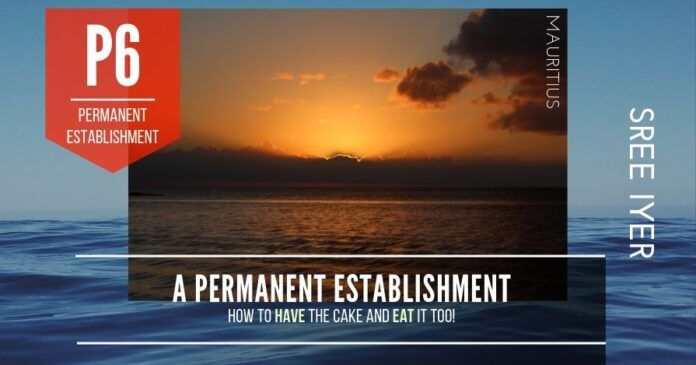
Parts 1..5 of this series can be accessed here. This is Part 6.
In Part 3[1] we briefly covered how the ‘benefits’ of the Double Tax Avoidance Agreement (DTAA) can get denied to an offshore entity if it is deemed to have a permanent establishment in India. Since usually it is the same set of persons who practically control all these entities (offshore entities are ‘shell’ entities), and they are based in India, all these entities should be deemed to have a Permanent Establishment (PE) in India.
I urge you to read at least the first few pages to get an idea of the timeline and how these HNIs (most of them crooks who made money illegally) have fashioned laws/ bent them to their advantage. Also the redacted portions (both yellow text and black boxes)…
However, the offshore industry uses a bunch of tricks to show that these entities don’t have a PE in India. We did mention some of these tricks in Part 3. In this part, a real document is included (names changed) which is an audit report/advice to a fund detailing out how to artificially avoid permanent establishment in India and is a master class on the tricks to do so. A bit of reading, yes, but a lot of gyan.
Many of these tricks appear childish, but then the offshore industry will go to any length to hide the reality from the authorities – this is some drama! For example, the office of the Indian entity had been referred to as the Indian office of the fund in various press releases and documents such as the pre-placement memorandum (PPM). While this is the truth, such a statement can let the cat out of the bag for the tax authorities that the fund has a permanent establishment in India, and thus ineligible for benefits under DTAA. Similarly, the key person based out of India was called as a General Partner or Managing Director of the fund, indicating that the fund was being managed out of India. Notice how this audit report advises the client fund to rectify these silly mistakes. The game plan is to pretend that fund is not being managed out of India and that the Indian entity is just providing non-binding advice to the fund – for example, it is recommended that the fund rejects 15% of the deals recommended by the Indian entity.
Enjoy the read… It is about 40 pages but I urge you to read at least the first few pages to get an idea of the timeline and how these HNIs (most of them crooks who made money illegally) have fashioned laws/ bent them to their advantage. Also the redacted portions (both yellow text and black boxes)…
Here is the document:
Anon PE Audit – Draft Repor… by on Scribd
References:
[1] Roundtripping ill-gotten wealth – Part 3 Nov 5, 2018, PGurus.com
- Indian Parliament’s Special Session is convened to mark the shifting to new Parliament building - September 3, 2023
- Why did Rajat Sharma of India TV not declare that Adani owns more than 16% shares in his channel? - January 29, 2023
- Prannoy Roy to get Rs.605 crore from Adani as per Stock Exchange filing. Why is Income Tax not acting on Roys’ dues of over Rs.800 crore? - January 4, 2023











It seems like perhaps the main reason these shell companies are being set up and used is because non-local/foreign entities seem to get a better tax treatment than local entities. Why do goverments do this?
Wouldn’t it be a simpler solution to ensure that foreign entities pay a higher tax on their revenues/profits than somebody based inside the country — thus removing the motivation to set up these outside shell companies?